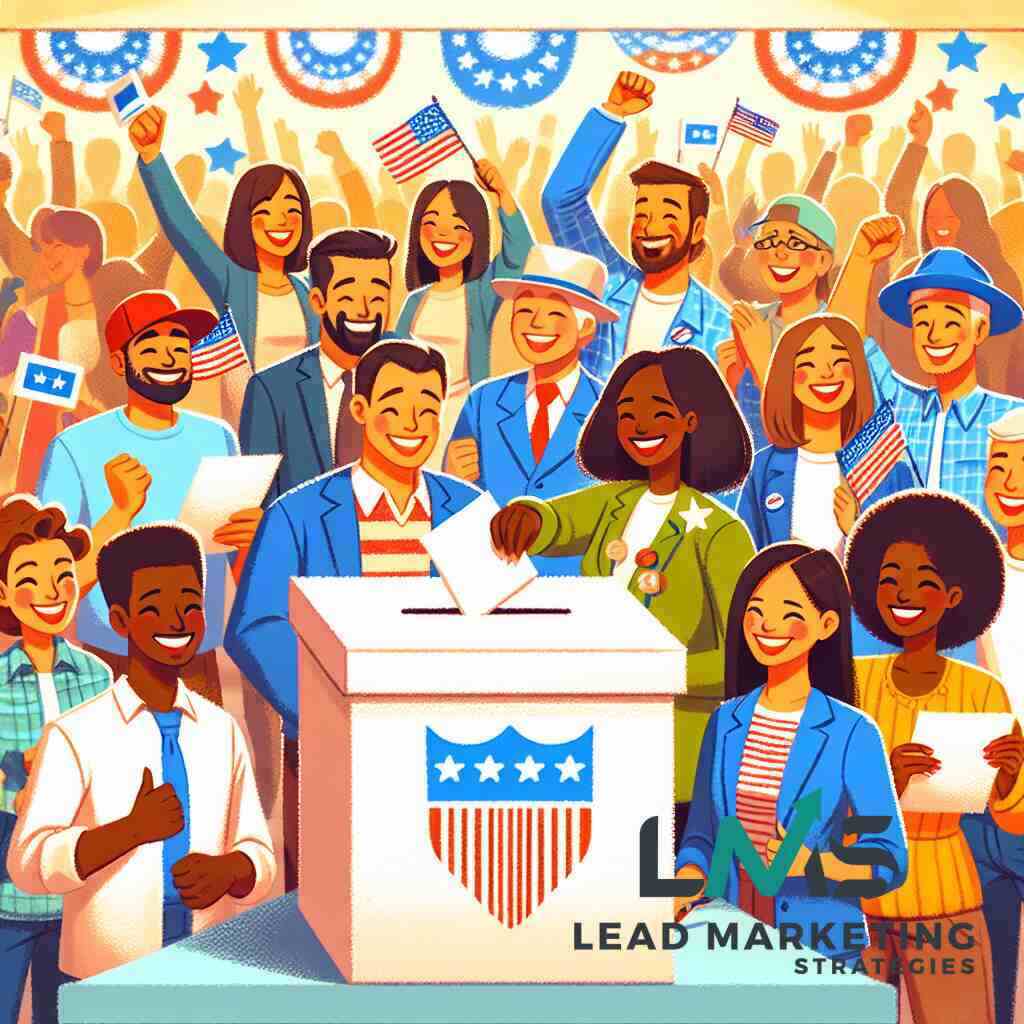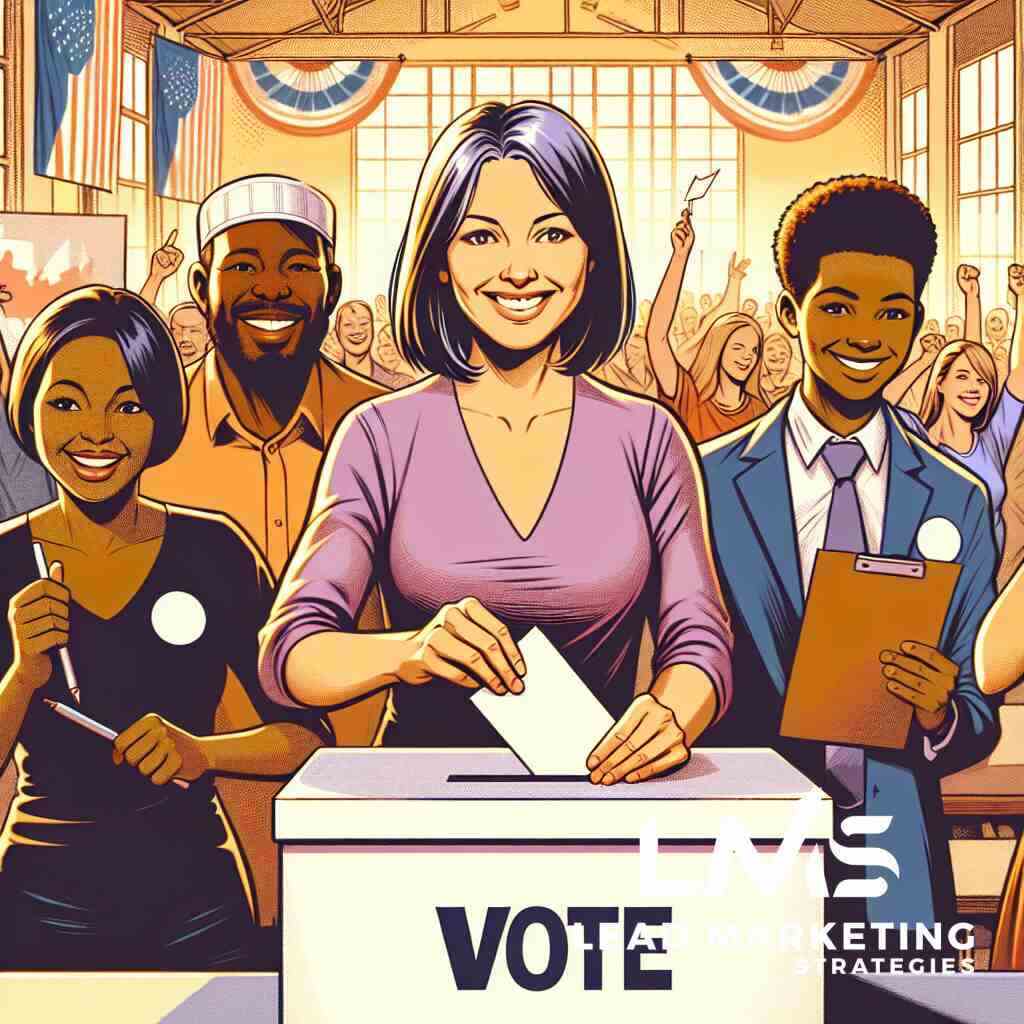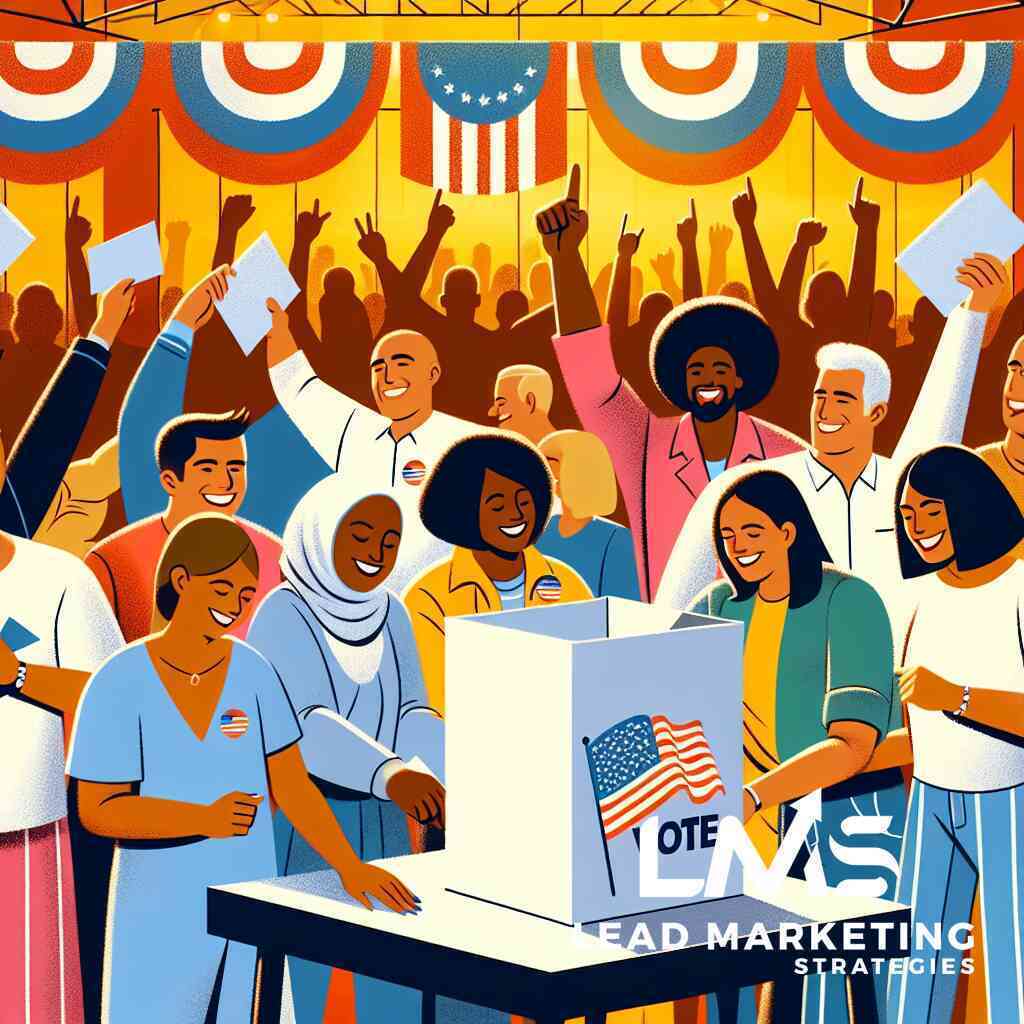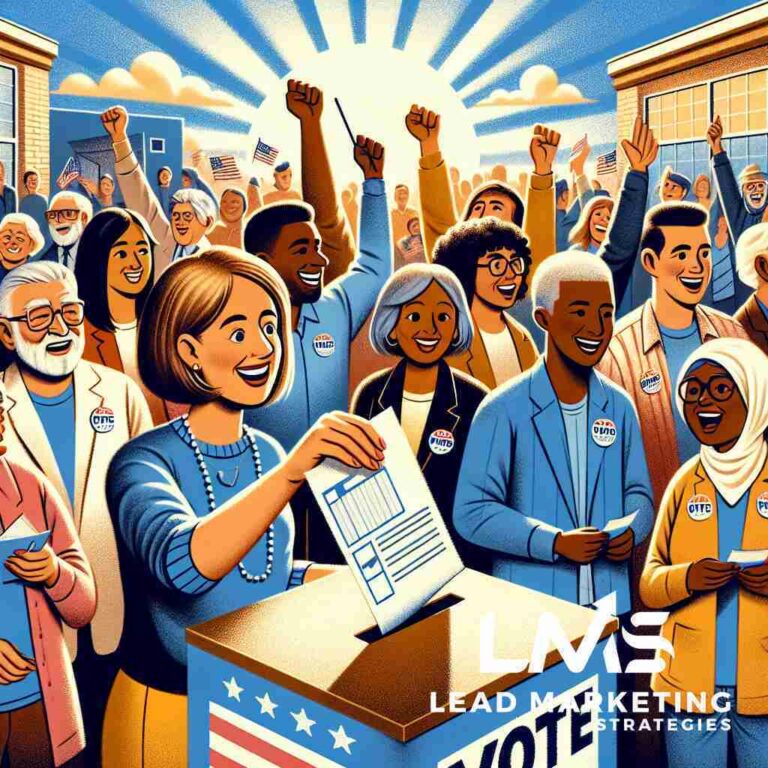Unveiling the Digital Political Renaissance
The Evolution of Political Campaigns in the Digital Age
In the past few decades, political campaigns have undergone a profound transformation, marked by the digital age’s arrival. This transformation reshaped traditional methods, offering a broad array of digital strategies in politics. Candidates now harness the power of digital tools, driving their agendas through more efficient channels. Such evolution illustrates a shift from conventional door-to-door canvassing towards leveraging social media and online platforms to engage a broader audience and elevate campaign visibility.
Social Media as the New Political Arena
Social media has emerged as an influential component of political campaigns, revolutionizing how politicians interact with voters. Platforms like Twitter, Facebook, and Instagram serve as vibrant ecosystems where political discussions thrive. The impact of social media on political campaigns is undeniable, as it transforms traditional arenas into accessible platforms for real-time interaction. This dynamic environment allows politicians to disseminate messages rapidly, shaping political landscapes and rallying immediate voter engagement.
Bridging the Gap: From Traditional to Digital Political Strategies
To remain competitive, political figures and campaign managers are transitioning from outdated methods to more sophisticated digital strategies. This transition involves crafting online political advocacy and engaging diverse voter segments through personalized content. The digital shift bridges generational gaps, reaching a tech-savvy electorate through social media, digital advertising, and online political influence. Explore The Definition of Political SEO for Campaign Success at Political Marketing Strategies. As political campaigns embrace this transformation, they also utilize election social media trends near NYC, showcasing the efficacy of well-crafted digital strategies over conventional tactics.
Harnessing Social Media for Political Power
Social Media Platforms: Modern-Day Political Stages
In today’s digital landscape, social media platforms serve as the new stage for political theater. Platforms such as Facebook, Twitter, Instagram, and TikTok are pivotal in transforming political engagement. These platforms enable politicians to communicate directly with voters, bypassing traditional media channels. By doing so, they forge stronger connections with their audience, which is essential in modern-day politics. The constant flow of information and interaction enables politicians to tailor their messages and strategies in real time, thus maximizing the effectiveness of their campaigns.
The ease of access to these platforms allows politicians to reach a broad demographic, capturing both the interest and support of previously untapped voter segments. Politicians use this access to implement digital political communication strategies, enhancing their digital presence and ensuring their messages resonate with their audience. With enhanced reach through social media, they can target specific communities and interests, optimizing their campaign’s impact.
The Role of Viral Content in Shaping Political Narratives
Viral content plays a crucial role in shaping political narratives and spreading them across social media platforms. A single tweet or meme can influence voter perceptions and opinions, making it a powerful tool for political campaigns. Politicians and campaign strategists craft content designed to go viral, achieving wide media coverage and public discussion. This content can include videos, images, or expertly crafted tweets that leverage humor or emotion to connect with audiences.
The ability of viral content to amplify political messages highlights the importance of developing a compelling digital political messaging strategy. Campaigns that master the art of creating relatable and shareable content gain a competitive edge, as these messages often lead to increased voter engagement and support. Understanding the Impact of Digital Tools in Voter Data Analysis.Furthermore, political campaigns utilizing this strategy can effectively shift public narratives, influence news cycles, and create lasting impressions on the electorate.
Engaging Voter Segments Through Targeted Social Media Campaigns
Targeted social media campaigns are a game-changer in political marketing. They enable campaigns to tailor their messages to specific voter demographics. By analyzing voter data and preferences, campaigns can create customized content that resonates with various voter groups. This targeted approach enhances voter engagement and increases the likelihood of converting undecided voters into supporters.
Campaigns leverage these insights to engage voters through personalized digital content, utilizing political social media analytics to refine their strategies further. Understanding the Complexities of Voter Data Analytics. This method allows for a more efficient allocation of resources and ensures messages reach the right audience. By adopting strategies that focus on tailored voter engagement, campaigns can maximize their reach and influence, ultimately driving voter turnout and election success.
Exploring Political Meme Strategies for Voter Persuasion
Political memes have emerged as a novel and engaging method for persuasion in modern political campaigns. These memes, often humorous and satirical, are shared widely across social media platforms, reaching vast numbers of people quickly. By exploring political meme strategies for persuasion, campaigns can capitalize on the viral nature of memes to communicate complex political ideas in a digestible and entertaining format.
The use of memes in political marketing requires understanding the cultural context and sensibilities of the target audience. Successful campaigns skillfully combine humor with political insight, thus resonating with the electorate effectively. Engaging voters through this medium can promote political literacy and awareness, fostering deeper connections with potential supporters. Exploring AI’s Role in Crafting Voter Engagement Near Me. As memes continue to flourish in political discourse, their strategic utilization remains an essential facet of innovative campaign tactics.
Social Media: A Double-Edged Sword in Political Campaigning
Analyzing Both Benefits and Risks of Social Media in Politics
Social media platforms have revolutionized political campaigning by creating unprecedented opportunities for direct engagement with voters. The benefits are significant: real-time communication, the ability to reach a global audience, and the personalization of political messages. Yet, the rise of social media also introduces new risks that can impact campaigns. One notable risk is the rapid spread of misinformation, which can easily distort public perception and influence electoral outcomes. Moreover, the targeted nature of political ads on social media can lead to voter manipulation, raising ethical concerns about privacy and the authenticity of political dialogue. Addressing these challenges requires a nuanced approach, balancing the advantages of social media’s impact on political campaigns with the potential for adverse effects. Exploring the Definition of Grassroots Engagement in Politics
Political Social Media Analytics: Measuring Impact Accurately
In a landscape driven by digital strategies in politics, political social media analytics play a pivotal role. These analytics provide insights into voter behavior, engagement metrics, and the reach of campaign messages. Accurate measurement of these metrics is crucial for optimizing campaign impact and refining strategies. With tools designed for data analysis, campaigns can track the effectiveness of their digital communication efforts, ensuring resources are allocated efficiently. Political social media analytics impact the ability of campaign managers to adjust tactics on the fly, responding to real-time data with informed decisions. By understanding the nuances of digital interactions, campaigns can align their strategies with voter expectations, amplifying their influence across multiple platforms. How do Data Analytics Redefine Political Marketing Strategies?
Navigating the Challenges of Online Misinformation and Political Advertising
Online misinformation poses a significant challenge to political advertising strategies. The rapid dissemination of false information can erode trust and polarize electorates, disrupting the democratic process. To mitigate this, campaigns must adopt election strategies in digital campaigns that prioritize transparency and factual accuracy. Enhancing digital literacy among voters and employing fact-checking mechanisms can help counter misinformation’s impact. Additionally, campaigns should be aware of regulations surrounding political advertising on social media, ensuring compliance with legal standards. By proactively addressing these challenges, campaigns can maintain credibility and foster a more informed electorate. Exploring Effective PR Services in Political Marketing. Understanding the impact of online misinformation in politics is essential for crafting strategic responses that protect the integrity of political dialogue and promote transparent communication.
Strategizing for Success: Crafting Effective Digital Political Campaigns
Developing a Cohesive Political Social Media Strategy
Achieving success in digital political campaigns requires a cohesive strategy that integrates all aspects of social media engagement. Politicians must leverage multiple platforms to ensure their messages reach a diverse audience. This involves understanding platform-specific dynamics and tailoring content accordingly. Implementing thoughtful social media marketing in elections can enhance the reach of campaigns. Coordination across different channels allows for consistent messaging that reinforces political branding.
A centralized strategy not only fosters alignment within campaign teams but also enables rapid response to emerging trends. Political campaign managers can capitalize on real-time platforms, such as Twitter, to address current events instantly, thereby staying relevant. Crafting a comprehensive approach involves balancing organic content with strategic advertising, ensuring maximum visibility and impact. Utilizing insights from politics in the digital age can guide the development of synergy between digital platforms.
Digital Messaging: Crafting Compelling Political Content
In a digital age marked by information overload, crafting compelling political content is vital to capture voter interest. Effective digital political messaging relies on clarity, authenticity, and resonance with audiences’ values. Political campaigns must articulate their core messages succinctly while appealing to emotions. This involves blending factual information with storytelling techniques that humanize candidates and issues.
Political content marketing strategies should emphasize relatable narratives that voters can connect with, enhancing engagement rates. Maintaining a consistent tone across digital assets reinforces brand identity and ensures messages are easily identifiable. Utilizing multimedia elements such as videos and infographics can break down complex political themes, making them accessible to various voter segments. By employing these tactics, campaigns can maximize their digital political strategy efforts and elevate their electoral influence.
Leveraging Political Influencer Marketing for Broader Reach
Political influencer marketing has emerged as a transformative tool for expanding campaign reach. Influencers, including local activists and well-known figures, wield considerable sway over their followers’ opinions and behaviors. By strategically partnering with influencers, campaigns can tap into established networks and bolster trust among skeptical voter groups.
Successful collaborations require careful selection of influencers whose values align with campaign messaging. This alignment ensures authenticity and cultivates genuine connections. Influencers can amplify campaign content, providing an avenue to engage younger and digitally savvy audiences. Moreover, influencer collaborations allow for personalized content delivery that speaks directly to specific voter demographics, enhancing the exploration of geotargeting in political marketing.
Incorporating influencer marketing as part of broader electoral analytics allows campaigns to measure impact and refine strategies in real time. Ultimate Guide to Voter Engagement Tactics by Political Marketing Strategies. Engaging influencers as thought leaders within specific communities can foster dialogue and inspire action, boosting voter turnout.
Community Engagement and Grassroots Movements in the Digital Sphere
The digital sphere presents unparalleled opportunities for fostering community engagement and nurturing grassroots movements. Digital platforms empower campaigns to mobilize supporters and drive collective action ,which critical for building widespread political momentum. By cultivating online communities, campaigns can harness the energy of grassroots advocacy to advance their political agendas.
Strategizing for digital engagement involves interactive initiatives such as virtual town halls, webinars, and Q&A sessions. These tactics encourage active participation and provide voters with avenues to express concerns, cultivating a sense of shared purpose. Campaigns can further galvanize support by encouraging user-generated content that highlights personal stories and aligns with campaign goals.
Additionally, leveraging social media’s networking capabilities can facilitate partnerships between diverse voter groups and advocacy organizations. By nurturing these alliances, campaigns can amplify their reach and influence. Understanding digital political campaigns and grassroots potential can create impactful alliances that resonate with the electorate and energize voter bases.
The Future of Political Campaigning: Embracing Digital Evolution
Anticipating Emerging Trends in Online Political Advocacy
Political strategies are constantly evolving, and staying ahead of emerging trends is crucial for success in digital campaigns. As more voters engage through online channels, understanding and anticipating changes in political marketing trends becomes a key factor. Defining Voter Segmentation Near You for Better Outreach Trends indicates a shift towards more personalized and targeted approaches, leveraging big data and analytics to fine-tune campaign messages. These strategies are designed to address specific voter concerns and preferences, ensuring that political messages are more resonant and relevant. This evolution in political advocacy highlights an increased reliance on artificial intelligence and machine learning to predict voter behavior, craft compelling narratives, and optimize outreach efforts. Exploring emerging trends in political marketing is essential for campaign strategists looking to harness digital advancements effectively. As traditional political engagement methods evolve, being prepared for these changes allows campaigns to seize opportunities and maintain a competitive edge.
Utilizing Election Social Media Trends for Future Campaigns
Social media remains an indispensable tool for political campaigns. Understanding and utilizing election social media trends is vital for future political strategies. Near urban centers like NYC, leveraging these trends can create significant electoral advantages. Campaigns must focus on creating dynamic content that adapts to shifting voter expectations and platform algorithms. Social media channels are increasingly being used to conduct sophisticated campaigns with real-time interactions, making voter engagement strategies more interactive and impactful. The increasing use of video content and live streams on platforms such as Instagram and Facebook Live has become a dominant trend. By focusing resources on these trends, politicians can ensure their messages align with modern voter preferences. Embracing election social media trends near NYC enables campaign teams to refine their strategies and increase voter engagement and influence, ultimately contributing to the overall success of their political campaigns.
The Role of Technology in Shaping Political Social Networking
Technology plays a pivotal role in shaping political social networking, bridging the gap between politicians and their electorates. Emerging technologies such as augmented reality (AR), virtual reality (VR), and blockchain are making their way into political campaigns, offering new avenues for voter interaction and engagement. These advancements allow for immersive experiences that can sway voter opinions by offering innovative ways to experience political messaging. Blockchain technology, for example, provides increased transparency and security in election processes, which could reinforce trust in the system. As technology continues to permeate politics, understanding its role allows campaigns to adapt and integrate these tools effectively. By embracing technological innovations within political marketing near major cities like New York and neighboring states, campaigns can optimize their strategies to foster meaningful voter connections. Utilizing advancements in political social networking becomes crucial for ensuring messages resonate with diverse audiences and fortifying campaign success across varying demographics.
Conclusion: Navigating the Social Media Landscape for Political Success
Synthesizing Insights into Future Political Digital Campaigns
As we anticipate the future landscape of political campaigning, it becomes imperative to synthesize insights gained from the current impact of social media on political strategies. Political campaigns must integrate comprehensive digital strategies that address voter preferences, engage through customized messaging, and utilize platforms that favor social media marketing in elections. Navigating the complexities of digital political communication requires campaigns to remain agile, adapting to changes in online trends and voter expectations. Political social media analytics will serve as a compass, guiding campaigns to make informed decisions based on voter data and engagement metrics. By understanding what resonates with digital audiences, politicians can craft messages that not only capture attention but also sway voter sentiments, driving higher engagement and turnout.
Paving the Way for Innovative Political Marketing Solutions
Innovative political marketing solutions will pave the way for future electoral success, leveraging tools such as social media platforms, influencer collaborations, and advanced data analytics to maximize outreach and persuasion. These solutions should be finely tuned to meet the unique demands of the digital age, where authenticity and relatability reign supreme. By focusing on voter-centric strategies, campaigns can foster deeper connections and create compelling political brand identities. This approach will not only enhance voter engagement but also fortify campaign visibility across digital arenas. Professional partners, such as Political Marketing Strategies and Lead Marketing Strategies, are positioned to provide expertise in crafting election strategies in digital campaigns, ensuring campaigns harness the full potential of digital tools and platforms. Embracing these strategies will empower politicians to navigate the evolving media landscape with confidence and achieve unprecedented political success.
Frequently Asked Questions
Question: How does social media impact voter social engagement in political campaigns?
Answer: Social media significantly enhances voter social engagement by providing platforms where voters can interact directly with political candidates and campaigns. Through these channels, voters receive real-time updates and responses, fostering a sense of involvement and immediacy. This dynamic interaction positions social media as a crucial tool for political digital communication, enabling campaigns to reach large, diverse audiences effectively. Political Marketing Strategies leverages these platforms to enhance voter engagement and optimize digital political strategy, ensuring your message resonates broadly and deeply with target demographics.
Question: Can Political Marketing Strategies assist in developing a cohesive digital political strategy?Answer: Yes, Political Marketing Strategies specializes in crafting comprehensive digital political strategies tailored to your campaign’s needs. Our approach involves integrating various aspects of social media campaigning to ensure consistent messaging across platforms. By analyzing political social media analytics, we refine strategies to maximize effectiveness and voter outreach. We stay ahead of election social media trends to deliver innovative solutions that enhance your campaign’s online influence and elevate your digital presence.
Question: What role do political meme strategies play in influencing online voter persuasion?
Answer: Political meme strategies play an increasingly influential role in online voter persuasion by presenting political ideas in engaging, humorous formats that are easily shareable. These strategies are embedded within political content marketing to reach and resonate with younger, more digitally savvy audiences. Political Marketing Strategies taps into cultural nuances to create memes that align with your campaign’s goals, enhancing voter connection and bolstering your campaign’s social media electoral influence.
Question: In the blog post about ‘What Is the Impact of Social Media in Political Strategies’, how do Political Marketing Strategies address the challenges of misinformation in digital campaigns?
Answer: Political Marketing Strategies actively designs digital political messaging that prioritizes accuracy and transparency to combat misinformation. Our teams employ advanced electoral analytics and fact-checking mechanisms within our online political advocacy efforts, ensuring that your campaign’s messages maintain credibility and integrity. By focusing on factual communication and using social media analytics, we help protect the authenticity of your political dialogue, fostering trust and reliability among the electorate.
Question: How can political marketing strategies leverage online political advocacy to influence the impact of the digital campaign?Answer: Political Marketing Strategies utilizes online political advocacy to increase the digital campaign’s impact by crafting messages that align with voters’ values and preferences. Through strategic social media campaigning and detailed voter data analysis, we tailor your campaign’s outreach to engage effectively with distinct voter segments. How to Optimize Voter Data with Political Marketing Solutions? Our expertise in digital political communication and voter engagement strategies ensures that your campaign not only reaches the right audiences but also inspires action and fosters loyalty, driving superior campaign results.





